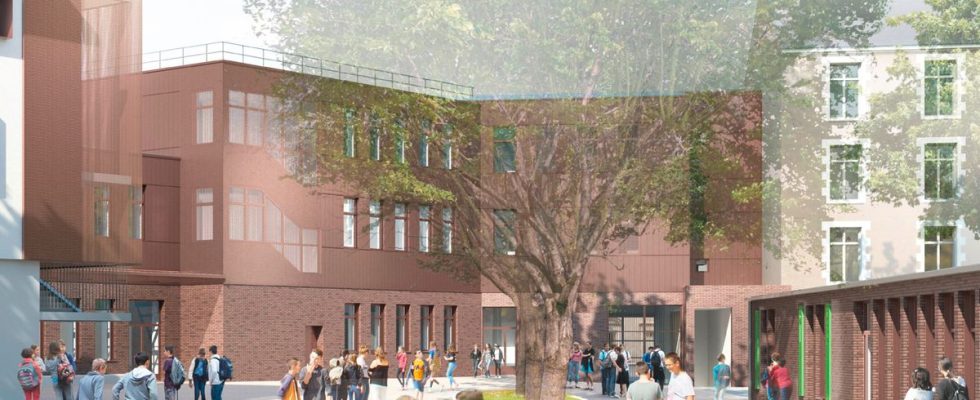The Christmas holidays are approaching but it is the 2024 school year which is occupying the discussions. At the Rosa-Parks public college in Nantes, a demonstration is being prepared among staff and parents of this establishment located in the popular Breil district. From 4:30 p.m. this Thursday, the Papermix collective and several unions are calling to mobilize to ask for “means and guarantees” regarding the resectorization project of several colleges, which will lead to its closure next September, in the name more school diversity.
As a reminder, the departmental council decided in April to shake up the school map: it announced that three middle schools were going to close their doors to move to the new establishment currently under construction in the city center (which will replace the old Vial high school). If we knew that the rather privileged students from Jules-Verne and Guist’hau, right next door, would be assigned there, the novelty was that some of those from the Rosa-Parks college, more modest, would also have their place.
“We support the idea of more diversity for better success for all students, but for it to work we need sufficient resources,” worries Sylvain Marange, from the Papermix collective. We have no guarantee at this time. »
“Mixity must be prepared”
While reflection is slowly making progress in France around this question, the collective (which claims to bring together hundreds of parents and teachers from the six colleges and nine schools concerned) has listed several demands. “We are first asking for a reduction in student numbers at all class levels in the host colleges,” continues Sylvain Marange, himself a teacher and parent. This must be accompanied by sufficient school resources, with educational assistants, nurses, social workers…”
Another concern, especially for the approximately 70 teachers concerned, is the lack of information on future assignments. “There is enormous concern among these staff who do not know where they will be sent, or even if they will be transferred elsewhere or I don’t know where,” indicates Erwan Le Bouch of Snes FSU 44. This is very important because diversity, you have to prepare it well, it’s not just about mixing audiences. » Among families, major cultural and organizational barriers have yet to be overcome, such as the thorny question of the geographical distance of the establishment.
A “flight” towards the private sector?
Without answers to “this great vagueness”, the risk raised by the parents and staff involved is the “flight to the private sector”, which currently concerns one in two students in the department. “Families are worried and they are looking for solutions,” notes Sylvain Marange. Registrations are done very early so if National Education does not want to do anything other than respect the classic calendar, it will be much too late to convince families to make the public’s choice. » Questioned on the subject in April, the departmental council assured on the contrary that the families were going to “return to the public, precisely so that their children can study in this new college”.
As for the diversity project itself, it can be based on a recent report from the Institute of Public Policies (IPP) which shows that “the social diversity of classmates has moderate but heterogeneous effects on academic success , essentially passing through their educational level” and on different experiments, such as in Paris and Toulouse, where the results are unequal. But according to the IPP note, “the effects of social diversity of classmates go beyond just academic performance: it promotes the development of students’ socio-emotional abilities, reduces the prevalence of racial and social stereotypes , and, for socially disadvantaged students, improves professional integration.

